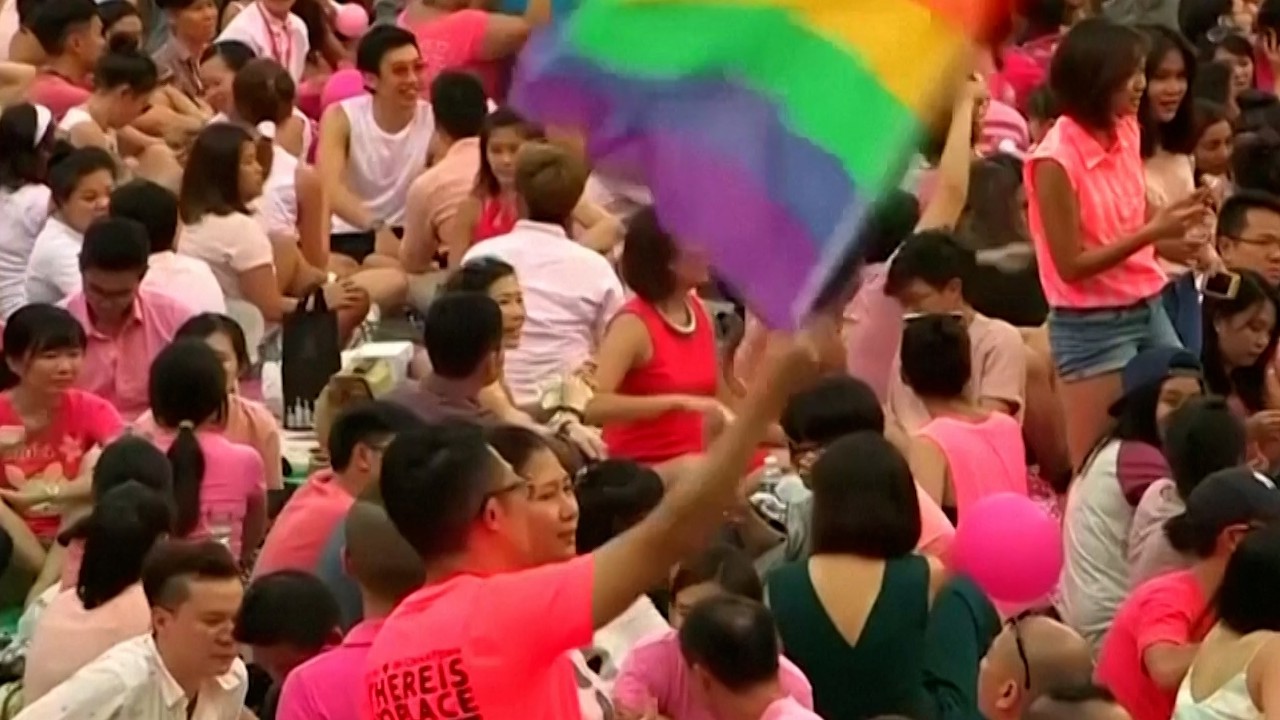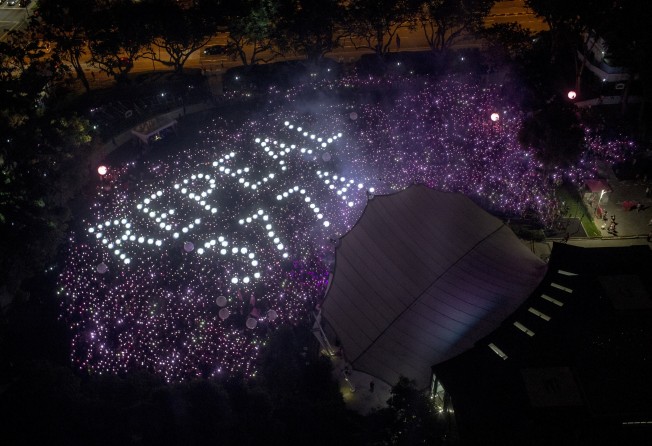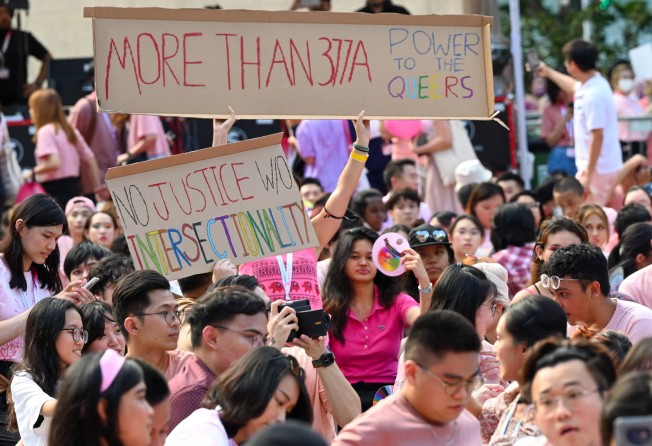
02:30
Singapore to scrap anti-gay sex law, but upholds ban on same-sex marriage

Singapore lawmakers will on Monday debate two bills that seek to repeal a colonial-era law criminalising sex between men while preserving the city state’s status quo position on marriage.
Analysts say parliamentarians across the political spectrum are set to air potential concerns and flesh out key points after Prime Minister Lee Hsien Loong first announced plans for the long-awaited legislative changes in August.
The government tabled the bills in October, proposing the repeal of Section 377A of the penal code and the introduction of a new “Institution of Marriage” article in the constitution, saying they would be debated together but voted on separately.
The Institution of Marriage article will, the government said, clarify that parliament has the prerogative to make laws to “define, regulate, protect, safeguard, support, foster and promote” marriage.
The article will also spell out that the government can promote the institution, including through pro-family policies.
The proposed constitutional amendment would protect them from being challenged in the courts.
The two bills will be debated but the ruling People’s Action Party (PAP), which has governed with a legislative supermajority for decades, said it will not lift the whip on the votes, meaning the passing of the bills is almost guaranteed.
The main opposition Workers’ Party (WP), which has nine MPs in the 103-seat legislature, has not provided a clear stance on its view although it has said that it recognises the fundamental right to be treated equally and respects “the right of different groups to hold and discuss positions according to their conscience”.
The opposition’s stance towards the bills was recently criticised by Prime Minister Lee, who said the bloc was “missing in action” and “refuse even to say whether they have a party position, or if they will lift the whip on their MPs when Parliament votes on the amendments”. He did not specifically name the Workers’ Party.
Political analysts said neither the Workers’ Party nor the Progress Singapore Party (PSP) were likely to take emphatic positions on the planned legislative changes.
Elvin Ong, an assistant professor of political science at the National University of Singapore (NUS) said opposition parties are likely to “tread a careful line as well” and how nuanced their positions will be remains to be seen.

Chong Ja Ian, another NUS associate professor, said that while the WP is unlikely to deviate from its position of non-discrimination and “a distinct line between church and state”, Monday’s debate could offer clues on how the party manages these concerns while taking into account the needs of the LGBTQ community and religious conservatives.
Observers believe there is unlikely to be much by way of a pushback from stakeholders given the extensive consultations the PAP held before Lee’s announcement in August.
Key officials have suggested the government’s two-pronged plan is designed to remove the archaic Section 377A – a long time bug bear of LGBTQ citizens who say it denigrates them even though it is not enforced – while also appeasing social conservatives who are worried the definition of marriage may be altered.
Section 377A of the penal code has its roots in Britain’s rule of Singapore and other colonies. The city state has been independent since 1965.
Felix Tan, a political analyst from Nanyang Technological University, noted that officials had done the groundwork and religious leaders were already “managing the fallout” before Lee’s announcement.
Ong said that once the government announces a position, the chances of it changing its position is “typically very rare”, so it “does not make sense” for stakeholders to continue pushing forth their concerns.
“They may also be waiting for the parliamentary debate to first assess what is said from all parties,” he added.
More pressing questions are when any decision will take effect, what areas are covered by the two bills and how they will affect other policies like housing, education and adoption, Tan said.
Other analysts said what MPs say about the broader rights of minorities, including the LGBTQ community, will be noteworthy.
Chong said that MPs are likely to raise issues like equality and discrimination and what they or their constituents see as “traditional” family values.
“More importantly, there is the question of how Singapore society and politics will deal with an increasingly diverse and pluralistic society,” he said.